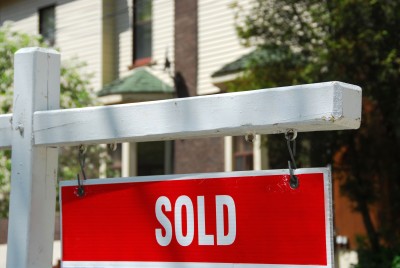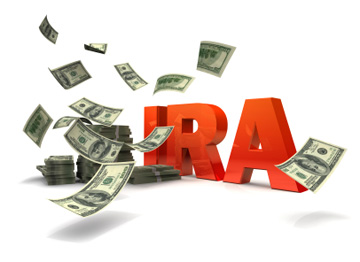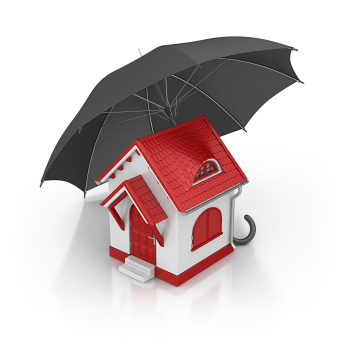Chester County PA Real Estate Market Trends - April 2015
 Decades ago, it was not uncommon for people to work at the same job for the entirety of their professional career. Similarly, many people kept the same home their whole lives. Those trends, however, have shifted. Today most homeowners buy and sell several homes throughout their lifetime. The reasons to sell one’s home vary—changes in family situations, neighborhood transformations, financial changes, and many others. However, the most popular reasons sellers decided to leave their home for another are quite simple—people moving to new areas and outgrowing their homes. According to the National Association of REALTORS® 2014 Profile of Home Buyers and Sellers, 15 percent of sellers sold their previous home because the place was too small. That number was much higher (30 percent) among first-time sellers. Additionally, another 15 percent sold their last home due to job relocation. Are you considering selling your home? Get a free current market analysis here.
Decades ago, it was not uncommon for people to work at the same job for the entirety of their professional career. Similarly, many people kept the same home their whole lives. Those trends, however, have shifted. Today most homeowners buy and sell several homes throughout their lifetime. The reasons to sell one’s home vary—changes in family situations, neighborhood transformations, financial changes, and many others. However, the most popular reasons sellers decided to leave their home for another are quite simple—people moving to new areas and outgrowing their homes. According to the National Association of REALTORS® 2014 Profile of Home Buyers and Sellers, 15 percent of sellers sold their previous home because the place was too small. That number was much higher (30 percent) among first-time sellers. Additionally, another 15 percent sold their last home due to job relocation. Are you considering selling your home? Get a free current market analysis here.
Take a look at Chester County PA Real Estate Market Trends for April broken down by school district.
Downingtown School District
The number of homes selling in the Downingtown school district in April 2015 rose by 32.73% when compared to April 2014. The average selling price increased by 5% to $381,938. The median selling price increased by 6.45%, while the average market time increased by 9 days.
| Date | Sold Listings |
Average |
Median Selling Price |
Average Days On Market |
| Apr 2015 | 73 | $381,938 | $341,000 | 63 |
| Apr 2014 | 55 | $365,468 | $320,350 | 54 |
West Chester School District
The number of homes selling in the West Chester school district in April 2015 increased by 15.48% when compared to April 2014. The average selling price increased by 12.53% to $405,894. The median selling price increased by 11.28% while the average market time increased by 13 days.
| Date | Sold Listings |
Average |
Median Selling Price |
Average Days On Market |
| Apr 2015 | 97 | $405,894 | $370,000 | 75 |
| Apr 2014 | 84 | $360,702 | $332,500 | 62 |
Coatesville School District
The number of homes selling in the Coatesville school district in April 2015 increased by 12.773% when compared to April 2014. The average selling price decreased by 8.91% to $224,979. The median selling price decreased 10.17%, while the average market time dropped by 1 day.
| Date | Sold Listings |
Average |
Median Selling Price |
Average Days On Market |
| Apr 2015 | 53 | $224,979 | $220,000 | 87 |
| Apr 2014 | 47 | $246,996 | $244,900 | 88 |
Great Valley School District
The number of homes selling in the Great Valley school district in April 2015 increased by 16.67% when compared to April 2014. The average selling price decreased 10.19% to $448,052. The median selling price rose by .34%, while the average market time increased by 10 days.
| Date | Sold Listings |
Average |
Median Selling Price |
Average Days On Market |
| Apr 2015 | 28 | $448,052 | $445,000 | 75 |
| Apr 2014 | 24 | $498,907 | $443,500 | 65 |
Unionville School District
The number of homes selling in the Unionville school district in April 2015 increased by 39.13% when compared to April 2014. The average selling price decreased 5.83% to $418,798. The median selling decreased 1.56% while the average market time dropped by 52 days.
| Date | Sold Listings |
Average |
Median Selling Price |
Average Days On Market |
| Apr 2015 | 32 | $439,834 | $447,900 | 66 |
| Apr 2014 | 23 | $467,053 | $455,000 | 118 |
Tredyffrin-Easttown School District
The number of homes selling in the Tredyffrin-Easttown school district in April 2015 decreased by 9.3% when compared to April 2014. The average selling price decreased by 3.98% to $399,919. The median selling price dropped by .64% while the average market time decreased by 12 days.
| Date | Sold Listings |
Average |
Median Selling Price |
Average Days On Market |
| Apr 2015 | 39 | $399,919 | $387,500 | 40 |
| Apr 2014 | 43 | $416,509 | $390,000 | 52 |
Owen J Roberts School District
The number of homes selling in the Owen J Roberts school district in April 2015 increased by 6.25% when compared to April 2014. The average selling price increased by 21.04% to $318,099. The median selling price increased by 25.31% while the average market time rose by 20 days.
| Date | Sold Listings |
Average |
Median Selling Price |
Average Days On Market |
| Apr 2015 | 34 | $318,099 | $280,000 | 116 |
| Apr 2014 | 32 | $262,812 | $223,450 | 96 |
Phoenixville School District
The number of homes selling in the Phoenixville school district in April 2015 increased by 10.53% when compared to April 2014. The average selling price increased by 13.17% to $215,470. The median selling price increased by 16.1%, while the average market time decreased by 7 days.
| Date | Sold Listings |
Average |
Median Selling Price |
Average Days On Market |
| Apr 2015 | 21 | $215,470 | $219,900 | 46 |
| Apr 2014 | 19 | $190,400 | $189,400 | 53 |
Curious about the value of your home? Get your home's value here!
Information courtesy of Chester County PA Realtor Scott Darling.
 Usually, when you take money out of an individual retirement account before you reach age 59 1/2, the IRS considers these premature distributions. In addition to owing any tax that might be due on the money, you'll face a 10 percent penalty charge on the amount. This is not the case, however, when you use the money to buy your first investment real estate. (Note: Technically, you don't have to be purchasing your very first home or building. You qualify under the tax rules as long as you, or your spouse, didn't own a principal residence at any time during the previous two years.) You can use up to $10,000 in IRA funds toward this purchase. If you're married, and you and your spouse are both first-time buyers, you can each pull from retirement accounts, giving you $20,000 to use.
Usually, when you take money out of an individual retirement account before you reach age 59 1/2, the IRS considers these premature distributions. In addition to owing any tax that might be due on the money, you'll face a 10 percent penalty charge on the amount. This is not the case, however, when you use the money to buy your first investment real estate. (Note: Technically, you don't have to be purchasing your very first home or building. You qualify under the tax rules as long as you, or your spouse, didn't own a principal residence at any time during the previous two years.) You can use up to $10,000 in IRA funds toward this purchase. If you're married, and you and your spouse are both first-time buyers, you can each pull from retirement accounts, giving you $20,000 to use. The National Association of Insurance Commissioners
The National Association of Insurance Commissioners annually) so that the costs associated with area schools, fire and police protection, and other necessary services and infrastructure can be allocated in proportion to the market value of individual properties.
annually) so that the costs associated with area schools, fire and police protection, and other necessary services and infrastructure can be allocated in proportion to the market value of individual properties. Below is a summary of real estate related provisions in the bill as summarized by the
Below is a summary of real estate related provisions in the bill as summarized by the  of being haunted or are the site of a previous violent crime--and the perception of ghosts and gore is not easy to erase.
of being haunted or are the site of a previous violent crime--and the perception of ghosts and gore is not easy to erase.




